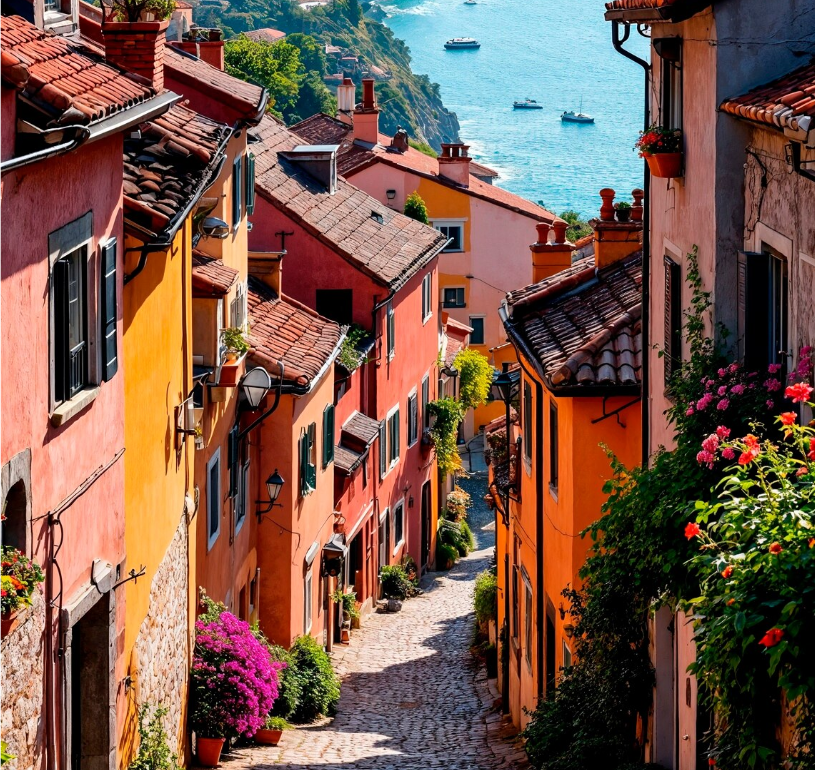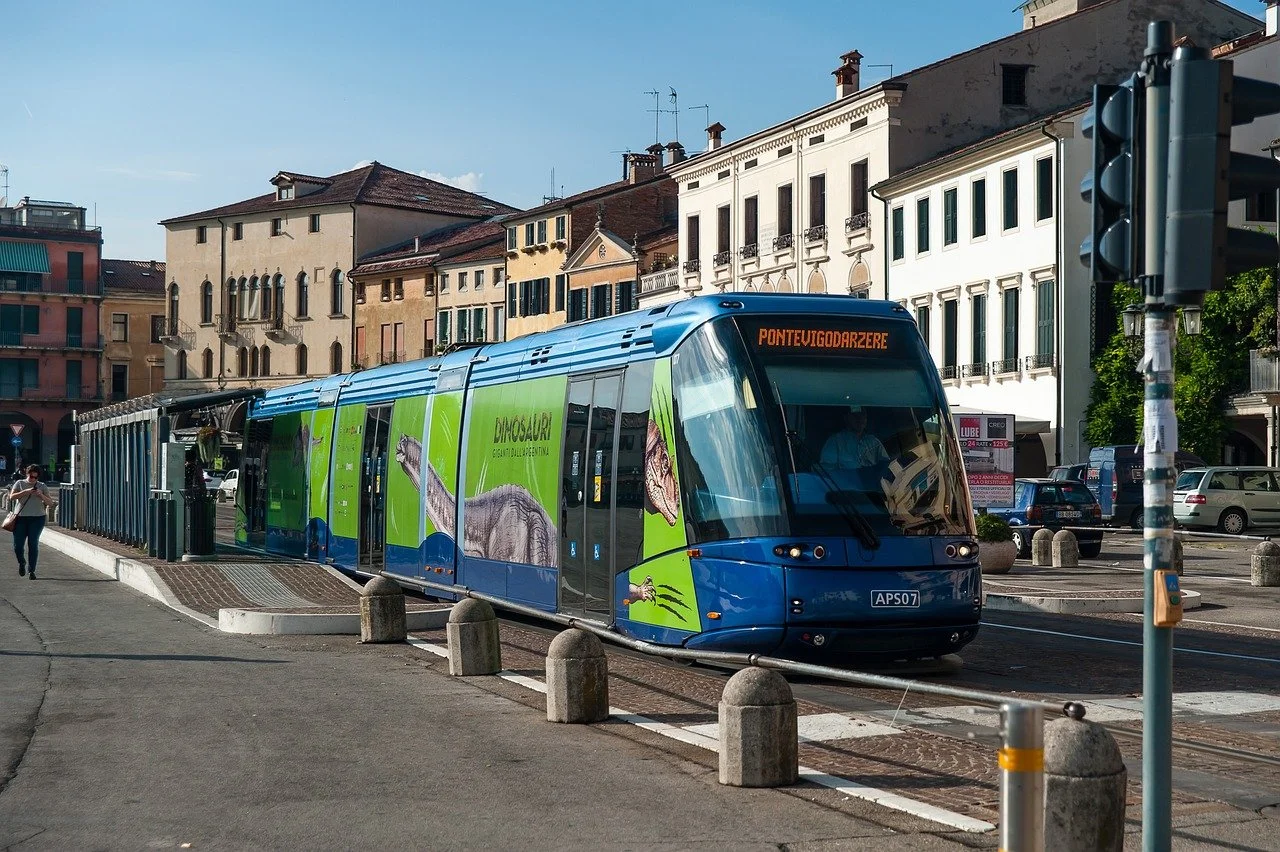Pros and Cons of Living in Italy as an Expat: 13 Essential Truths
Dream of moving to Italy? Before you pack your bags, get the real scoop! In this guide, I’ll share 13 truths about expat life, from mouth-watering Italian food to mind-boggling bureaucracy and cost of living surprises. Thinking Italy is all sunshine and gelato? Let’s dig into the highs and lows and find out if it’s your perfect new home.
A street in Italy.
1. World-Class Italian Food Quality and Culinary Culture
Craving real Italian food? If you move to Italy, you’ll find pizza, pasta, and so much more. In northern Italy, risotto rules. In Sicily, arancini and seafood steal the show. Each region has its own star dish.
Here, meals are a party. Lunch breaks last two to three hours. Friends, family, and even the boss join in. You’ll build bonds over sauce and wine.
For expats, this is a chance to learn Italian culture firsthand. Planning to live in Italy? Get ready for a tasty adventure that spices up life in Italy. Sharing a long lunch with a business partner can land you new opportunities.
2. Navigating the Labyrinth of Italian Bureaucracy When You Live in Italy
Dealing with Italian bureaucracy is a top con of living in Italy for expats. The system moves at a snail’s pace. Even Italians find it baffling. Getting a visa and residency permit can take months.
In a reported case, one person waited nine months only to receive a card valid for 2.5 months. Translation and legal fees add up fast. Every document needs a certified translator, which costs time and money.
Rules shift without warning, so tips from expat friends may be outdated. The Italian Ministry of Foreign Affairs offers guidance, but each region of Italy handles rules differently. If you want to live in Italy, be ready for a real test of patience.
3. Embracing La Dolce Vita Amidst Rich History, Culture, and Beautiful Surroundings
Ready to live in Italy and embrace the true dolce vita? Imagine strolling past Roman ruins and medieval castles on your way to a café.
You can easily travel from the Colosseum and Pompeii to Florence and Rome. The UNESCO World Heritage Sites would always be within reach.
In Tuscany, winding vineyards beckon. Sicily’s beaches and volcanic views impress every day. The Alps are perfect if you love winter sports.
Expats rave about Italy’s easy pace, tasty food, and strong healthcare system. Just sort your visa, learn to speak Italian, and consider the cost of living. Before you know it, Italy’s history, culture, and scenery will feel like home.
4. The Significant Language Barrier Beyond Tourist Hotspots
Learning Italian is key if you want to live in Italy beyond tourist spots. In many towns—especially in southern Italy—English is rare. This can turn simple tasks like visiting a doctor into major headaches. Even asking for directions or chatting with neighbors feels limiting without language skills.
Apps like Duolingo help you learn Italian, but real progress comes from daily practice. Consider joining a local school or finding conversation partners.
Two people having a conversation in a residential region in Italy.
As an expat, tackling this early eases residency hurdles. It also makes navigating the public healthcare system less stressful. It’s one of the biggest cons to living in Italy, yet well worth it.
5. Accessible and Affordable Healthcare System
If you plan to move to Italy, you’ll find one of the world’s best healthcare systems. The public healthcare system treats you for free as a resident.
For expats, having health insurance is a must. It’s cheaper than in the USA. You get both emergency care and checkups covered. Doctors focus on prevention, not profits.
This helps people live longer and feel great. Private care is also an option when you need fast service. It costs more but can speed up specialist visits or elective procedures.
Overall, Italy’s mix of public and private care makes life in Italy smoother, even with a cost of living that’s higher in big cities.
6. The Challenging Job Market and Difficulties in Finding a Job
Landing job opportunities in Italy can feel like solving a tricky puzzle. This is especially for expats who don’t speak Italian. The job market here has high unemployment, even for grads.
Most hiring managers pick Italian citizens. Most would rather not sponsor a visa for a foreigner.
Your best shot? Cities like Milan and Rome, where international firms and tourism gigs pop up. Still, you’ll face a language barrier; some Italian is usually required. Good news: remote work roles are growing. This means that you can keep your current job while you live in Italy. Just watch for taxes and work permits.
7. Excellent Travel Opportunities Within Italy and Across Europe
Italy’s efficient and affordable trains link major cities like Rome and Venice. This makes travel lightning fast.
High-speed routes zip you from Florence to cities like Naples in hours. Regional lines bring you to hidden gems in northern Italy or tiny villages. Italy, as an expat life, is a dream.
A quick ride gets you to Paris in six hours. Flights to Prague take under two hours. Weekend trips to Sicily feel easy, thanks to ferry links.
With island hops and scenic countryside, Italy offers endless adventure. Ready to see why so many say live in Italy is the best choice? Pack your bags!
8. Specific Financial Hurdles for Americans and High Costs in Certain Areas
If you’re an American expat, living in Italy is a dream. But FATCA makes opening bank accounts in Italy tough. Many banks hesitate to serve US citizens because of extra reporting.
Plus, as a US citizen, you still file taxes each year, wherever you live. That double-duty can get messy, so get ready for some bureaucracy. And watch your wallet. The cost of living in Italy jumps in big cities like Milan and Rome.
A night shot of the Naviglio Grande canal in Milan, Italy.
But don’t lose hope: buying property in Italy can pay off. Owning a home offers stability. It also provides potential investment gains. Many expats find long-term perks despite the hurdles.
9. Generally Affordable Cost of Living, Especially Outside Major Cities
Outside major urban centers, the cost of living in Italy can be surprisingly reasonable. Smaller towns and rural areas offer affordable housing options with significantly lower monthly living expenses than tourist destinations.
Fresh produce costs less in local markets than imported foods in supermarkets. Shopping seasonally and locally can dramatically reduce grocery expenses while providing access to higher-quality ingredients.
Cell phone and internet services often cost significantly less than comparable services in countries like the United States. Competition between providers keeps prices reasonable for basic communication needs.
10. Difficulties in Finding and Integrating into Social Circles
Trying to live in Italy as an expat? Making friends can be tough. Italian families tend to stick with old pals. These tight circles leave outsiders on the sidelines.
A language barrier makes it worse. You might struggle to join chats or get local jokes. As an American expat, patience and real effort always make it easy. Join events, learn Italian, and share local traditions to break in and enjoy life in Italy.
11. Strong Community and Family Ties Fostering a Supportive Environment
Italy feels like one big family. Italians welcome children and value close-knit homes. Many generations live nearby, so you always have support.
Friendships here run deep—once you bond, you’re part of the crew for life. That loyalty makes Italy as a foreigner feel extra warm.
Every town buzzes with local markets, seasonal festivals, and neighborhood events. These gatherings make it easy to meet new people and dive into the culture in Italy.
Italy provides proud locals who love sharing food, traditions, and hidden gems. Ready to live in Italy? You’ll find a true place to live right away.
12. Unpredictable Public Services and Practical Daily Annoyances
Public services like trains and post move slowly sometimes. Delays happen. Living in Italy means planning ahead for strikes or cancellations. Missed deliveries can be frustrating, with no tracking and no windows.
Shops close on Sundays and nap on weekdays, so adjust your schedule. Also, no clothes dryers here: air-dry everything.
And sink garbage disposals? Forget it. You’ll sort scraps by hand. These are key cons of living in Italy to know if you plan to move to Italy. It’s all part of the charm.
A street train.
13. Dangerous Driving Conditions and Congested Roads
Driving in Italy can be risky. Urban areas face heavy traffic. Many Italians treat rules like suggestions. Accidents happen often.
Narrow streets and limited parking add more challenges. As an expat, these conditions stand out as major cons of living in Italy. Cycling and walking can feel safer.
Italian drivers may not watch for pedestrians on historic roads. Defensive driving is a must for anyone who wants to live in Italy. The European Road Safety Observatory offers key statistics. Instead of driving, you might use public transport. Italy offers robust train networks.
Conclusion
Living in Italy is generally dreamy with an amazing Italian lifestyle, food, and culture. But expats face bureaucracy, a tough Italian job market, and a language barrier. Research the cost of living, plan residency in Italy, and set realistic goals. That way, you can enjoy your life in Italy.
Frequently Asked Questions About Pros and Cons of Living in Italy
Is Italy a good place to live for expats?
Italy offers an excellent quality of life, rich culture, and beautiful surroundings, but challenges include bureaucracy, language barriers, and job market difficulties.
How much money do I need to live comfortably in Italy?
Costs vary significantly by location. Major cities require €2,000-3,000 monthly, while smaller towns may need €1,200-1,800 for comfortable living.
Do I need to speak Italian to live in Italy?
Speaking Italian is a must, especially in the rural areas. Italian language skills are essential for daily life outside tourist areas. Basic communication helps with shopping, healthcare, and building relationships.
How difficult is Italian bureaucracy for expats?
Italian bureaucracy is notoriously slow and complex. Expect lengthy processes, multiple office visits, and potential delays for permits and documentation.
Can Americans easily get healthcare in Italy?
Italy's public healthcare system is one of the best in the world, and it provides excellent care to residents. Americans need health insurance and must register with local health services.
Is it hard to find work in Italy as a foreigner?
Italy is known for a volatile job market, especially without Italian language skills. The best opportunities exist in major cities or with international companies.



